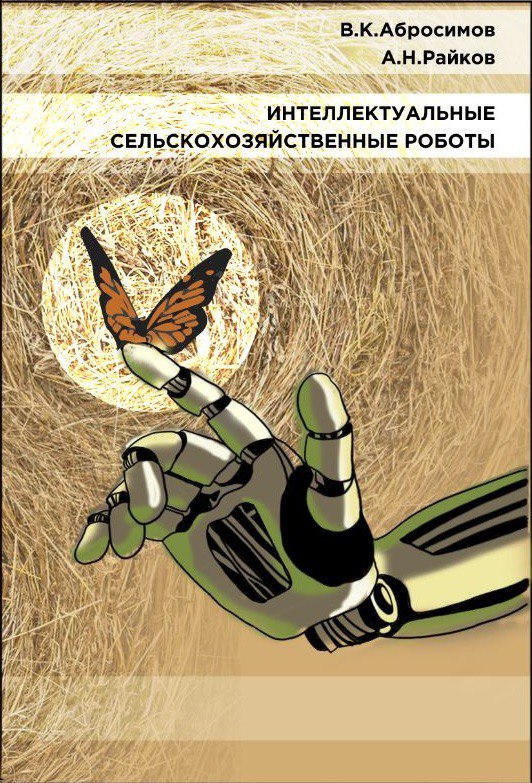On July 6, 2022, the book “Intelligent Agricultural Robots” written by Vyacheslav Abrosimov and Alexander Raikov was published by “Career Press”.

In 25 chapters of the monograph, current trends in the development of agricultural robots and artificial intelligence systems to improve the efficiency of agriculture are considered, and the possibilities of their practical application are shown. The control of agricultural robots is considered on the examples of solving the problems of precision farming and animal breeding, in particular, a comprehensive agrochemical soil survey, recognition of plant diseases, weed and pest control, livestock and poultry feeding, robotic milking. Methods and means of artificial intelligence are considered mainly on examples from the field of precision animal breeding, where they are used to diagnose behavior, proactively detect diseases of animals and birds, etc.
The book is aimed at researchers, agronomists, managers of agricultural enterprises, specialists in the field of agriculture, mechatronics, artificial intelligence, robotics, cybernetics, teachers, students and graduate students of relevant universities.
The book will be especially interesting for agro-scouts – specialists mastering a new profession in the Russian agro-industrial sector, located at the intersection of agronomy, informatics and analytics. At the same time, the non-standard presentation of the book will captivate any other reader who is not indifferent to the development of Russian agriculture.
The preface to the book was given by I.A. Kalyaev, academician of the Russian Academy of Sciences, chairman of the Council for the priority direction of scientific and technological development of the Russian Federation “Transition to digital, intelligent production technologies, robotic systems, new materials and design methods, creation of systems for processing large amounts of data, machine learning and artificial intelligence.”
The reviewers of the book are D.A. Novikov, academician of the Russian Academy of Sciences, doctor of technical sciences, professor, director of the Institute of Control Problems of the Russian Academy of Sciences, and E.V. Zhuravleva, doctor of agricultural sciences, professor of the Russian Academy of Sciences, advisor to the chairman of the Board of directors of the EFKO Group of Companies.
Authors of the book:
Abrosimov V.K. – trained as a military ballistics engineer. Doctor of technical sciences, visiting professor at a number of major universities. Head and direct participant in over 80 major projects, author of over 200 scientific papers, four monographs, several art books and collections of poems. His research interests include robotics, artificial intelligence, expert and neural systems, multi-agent technologies, and self-organizing systems. He plunged into agricultural problems several years ago, but now he is convinced that finding their practical solution is much more difficult than developing algorithms for military-technical problems.
Raikov A.N. – an engineer-radiophysicist by education. Doctor of technical sciences, professor, acting state counselor of the Russian Federation 3rd class, laureate of the Prize of the Government of the Russian Federation in the field of science and technology. Leading research fellow at the Institute of Control Problems of the Russian Academy of Sciences, professor at MIREA – Russian Technological University, head of the Department of artificial intelligence at the National center for digital economy of Lomonosov Moscow State University. Director of the Artificial intelligence center of the International Research Institute of Management Problems, scientific supervisor of the expert and analytical center of the Institute of Tax Management and Real Estate Economics, National Research University Higher School of Economics. Member of IIS Supervisory Board. His research interests include strategic planning; convergent management, situational centers, cognitive modeling and decision support; expert analytical systems, strong artificial intelligence.
